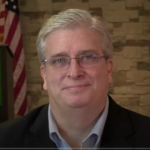On June 1, following a public comment period of roughly one month, the U.S. State Department released its Fifth Climate Action Report to the United Nations Framework Convention on Climate Change.
As Heartland Senior Fellow James M. Taylor reported when the draft report was released April 8, the State Department had concluded, “Global warming is unequivocal and primarily human-induced … Global temperature has increased over the past 50 years. This observed increase is due primarily to human-induced emissions of heat-trapping gases.”
Those sentences remain in the final report, leading one to question whether State Department editors bothered to read and consider comments that did not agree with their pre-conceived notions.
The news release announcing publication of the final report asserts, “The report incorporates comments received during a public comment period that began on April 8, 2010 and ended on May 6, 2010.” But there are few footnotes and no appendix presenting the public comments received. Fully half of the references in the bibliography are to government reports, and The Heartland Institute was unable to find a single reference to a scientist we know to be skeptical of anthropogenic global warming theory.
We know for a fact, however, that at least six skeptics submitted public comments to the State Department – they copied The Heartland Institute on their submissions. You can find those comments here:
Global Warming Alarm Based on Faulty Forecasting Procedures – J. Scott Armstrong, Kesten C. Green, and Willie Soon
Best Policy on Climate Change? Have the Courage to Do Nothing – Howard Hayden, Professor Emeritus of Physics, University of Connecticut
Carbon Dioxide: The new WMD (Weapon of Mass Deception) – Art Horn, meteorologist
Climate Action Report: Two Major Flaws – Anthony R. Lupo, Department of Soil, Environmental, and Atmospheric Science, University of Missouri
The Heartland Institute is a nonprofit, nonpartisan public policy research organization. Its mission is to discover, develop, and promote free-market solutions to social and economic problems. Among its many efforts in support of that mission, Heartland provides opportunities for scientists skeptical of anthropogenic global warming to make their voices heard in the public debate.
For more information about The Heartland Institute, or to contact the scientists whose public comments on USCAR-5 are cited here, contact Communications Director Jim Lakely at 312/377-4000, email [email protected].




